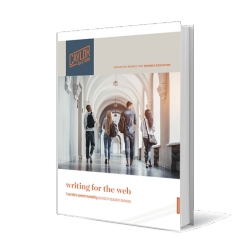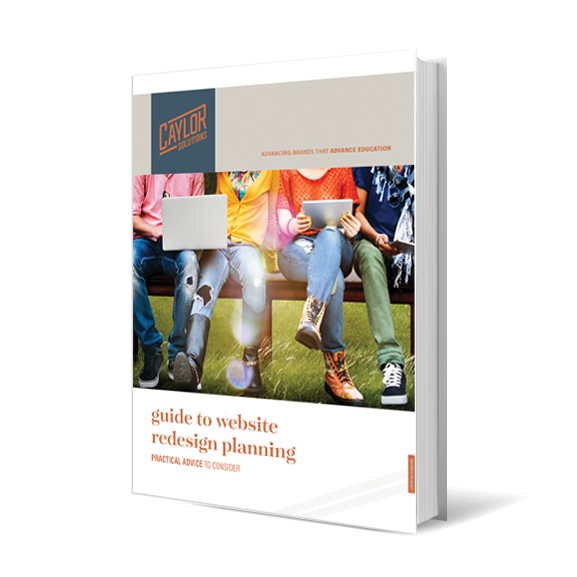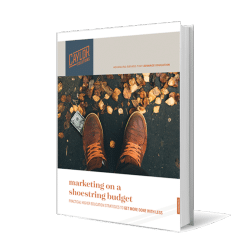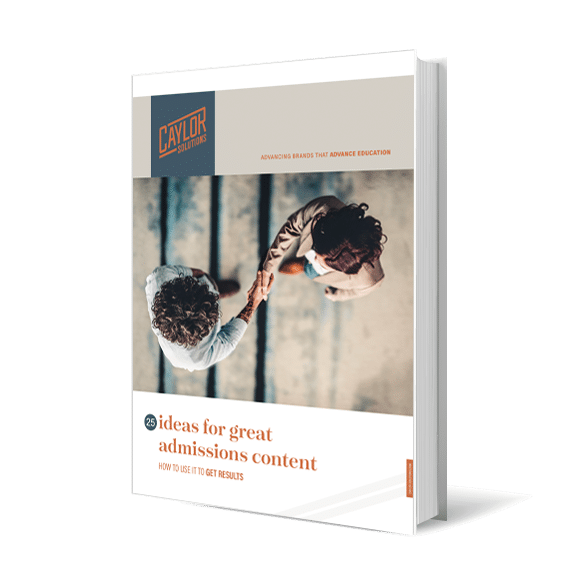A visitor lands on your site. Your web writing has 15 seconds or less to convince them to hang around.
Fickle? Lazy? Distracted?
I’ve heard website visitors accused of all three. Truth is, your website visitor doesn’t fit any of those descriptions.
Oops, time’s up!
Still reading? Then, consider the way I’m writing to you now.
Short and sweet. Heck, I’m not even completing my sentences.
Are you still here because you’re fickle, lazy, or distracted? Not at all. The truth is…
You’re discerning.
You are sorting out whether I’ve got something valuable for you or not, and your time is too valuable to waste it slogging through massive chunks of dry text.
You may have heard pundits wail and mourn over the steady decline of reading in favor of video rich content like YouTube. Even Facebook and Twitter have become more dependent on video content to keep users glued to their screens.
While it’s true most readers aren’t scarfing down Jane Austen novels, that doesn’t mean they aren’t reading.
The modern web user reads as voraciously as readers have always done, but with one very important difference.
They’re trying to read a book called the Internet.
It’s never ending, forever evolving, and teeming with informational, entertaining, and persuasive content. Like drinking from a firehose, no one has the capacity to read everything on the web.
That’s why today’s reader is discerning… like you.
So, how do you write for the web with an audience who’s giving you less time than an American Idol contestant?
Use simple, every-day words.
It’s not demeaning or condescending to use simple words. It’s a courtesy.

“Good writers have two things in common: they prefer to be understood rather than admired; and they do not write for knowing and over-accurate readers.” – Friedrich Nietzsche
Write in short sentences.
Short sentences keep eyes moving and fingers scrolling.
This doesn’t mean you can’t use conjunctions, but don’t use them too often, for this will make your reader feel like the sentence never ends, and they’ll probably stop reading.
Learn to appreciate “white space.”
“White space” is the empty space in a design. It is the equivalent to open, fresh air for the eyes.
If you jam your page full of words, or squash them together into dense paragraphs, subconsciously your reader will feel crowded and hesitate to read your copy.
White space gives clarity to the text and guides your reader through the text. This is getting more important as more users are accessing your site via mobile browsers.
How do you create white space? Write in short paragraphs. Paragraphs should stick to two or three lines.
Write for interaction.
Web copy should be interactive. Web visitors expect the Internet to respond to their behavior.
When users click on a button, they expect something on the screen to change. And, they expect the new page or window to directly relate to what they clicked on.
So, be sure to place hyperlinks, buttons, and clickable banners in your text whenever possible. (This is also a good strategy for SEO.)
Web writing is another writing discipline, not a cop-out.
While not as sophisticated as academic writing, writing for the web is just as much a discipline, having been developed over the years to accommodate the needs of the site user.
Take these principles and grade your own web copy.
Is it simple? Does it pull in the reader? Does it engage them?
You’ll see a difference in your website and the behavior of your site users if you learn to write short and sweet.
If you need help with any of your marketing efforts, contact us and learn what our team can do for you. There’s no obligation.
Want to Improve Your Digital Marketing Results?
Then you’ve got to know how to write for the web. That’s why we want to send you our popular ebook: Writing for the Web: 7 Secrets to Content Marketing Success for Education Marketers!
With this helpful resource, you’ll learn how to:
- Grab your reader’s attention immediately
- Pull your reader’s attention deeper into your content
- Write so that Google (and other search engines) find you easily
- Increase your website’s conversion rates
In short, you’ll be able to write the copy that makes your digital marketing strategy work for you. Download your copy today!
Featured Image by djile via Adobe Stock
Friedrich Nietzsche Image via wikipedia











